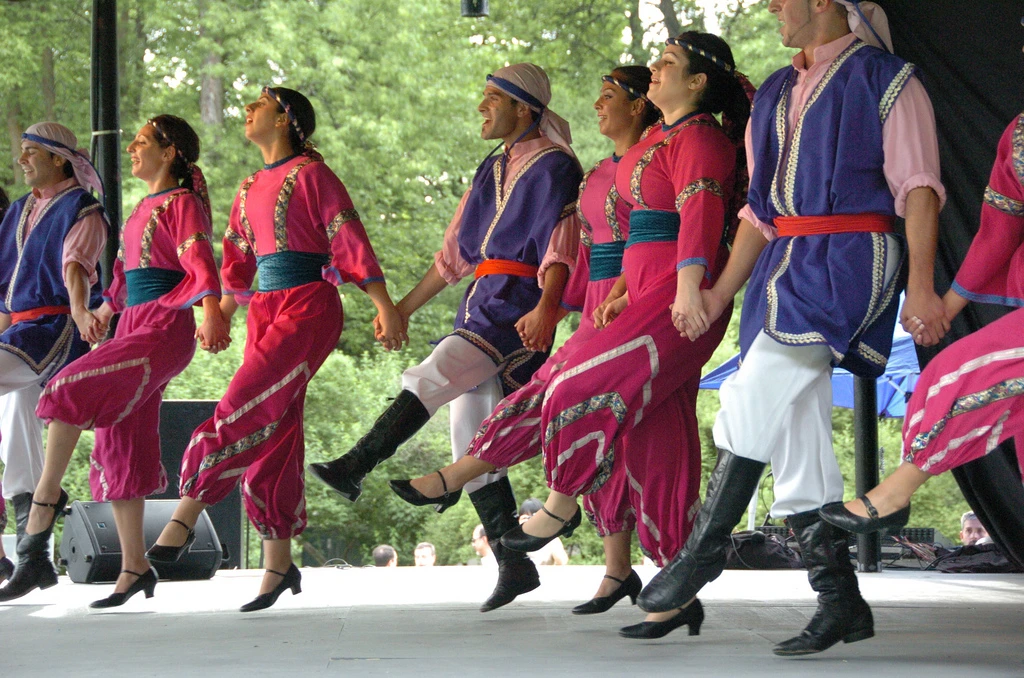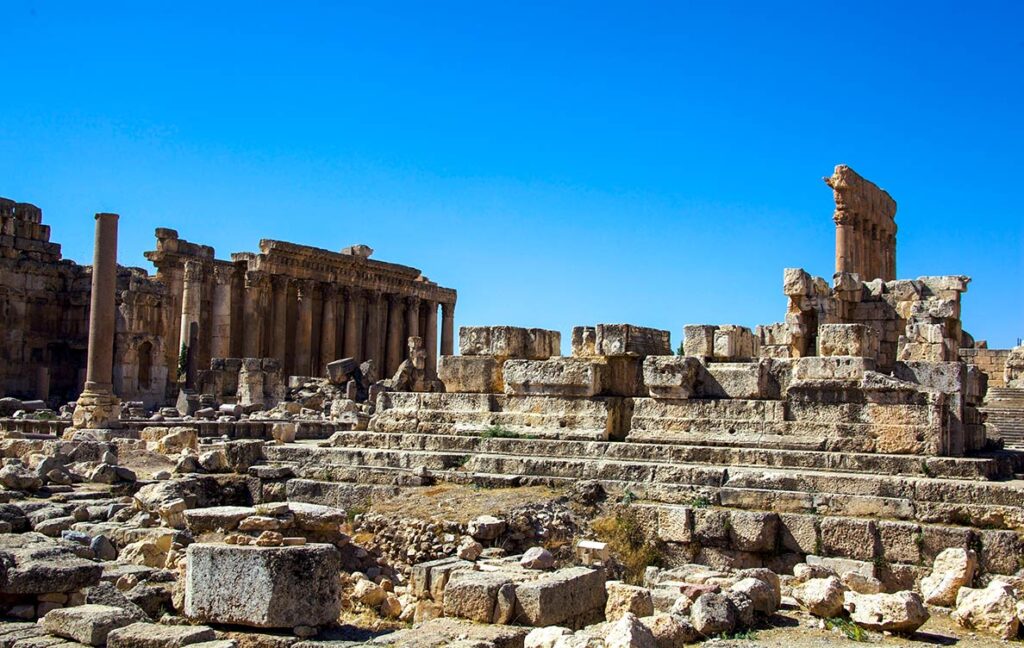Lebanon is a beautiful country that’s not often on many travel itineraries. Nestled between the Mediterranean Sea and the Middle East, this tiny nation boasts a fascinating history, rich culture, and stunning landscapes. From its bustling cities to quaint villages, Lebanon has something for every type of traveler. In this blog post, we will be exploring the charm of Lebanon, highlighting the top destinations, food, and experiences that make this country an absolute must-visit.
The Culture of Lebanon

Lebanon’s culture is a beautiful mix of various influences that have shaped it over time. From the ancient Phoenician civilization to French colonialism, Lebanon has a rich and diverse cultural heritage that is worth exploring. One of the best places in Lebanon to experience this is the capital city of Beirut.
Beirut is a melting pot of cultures, religions, and traditions. Walking through the streets of the city, you can witness the fusion of Eastern and Western cultures in everything from the architecture to the food. The city has something to offer to everyone, from museums and art galleries to lively nightlife and world-class restaurants.
Apart from Beirut, there are several other places in Lebanon where you can immerse yourself in the country’s unique culture. The picturesque town of Byblos, for instance, is a must-visit for history buffs. It is one of the oldest continuously inhabited cities in the world and has a rich history dating back to the Bronze Age.
If you’re interested in religion and spirituality, then a visit to the city of Harissa is a must. This hilltop city is home to the iconic Our Lady of Lebanon statue and is considered one of the most important pilgrimage sites in the region.
Overall, exploring Lebanon is an enriching experience that allows you to discover the country’s fascinating culture. Whether you travel Lebanon for the food, the landscape, or the history, you’re bound to fall in love with the warmth and hospitality of the Lebanese people.
The Landscape of Lebanon

One of the many reasons why Lebanon is worth visiting is its breathtaking landscape. The country is home to many natural wonders that will leave you in awe. Whether you’re a nature enthusiast or just someone who loves to travel, there is always something new and exciting to explore in Lebanon.
If you want to experience the best place in Lebanon, you have to go to the Jeita Grotto. Located in Nahr al-Kalb Valley, the Jeita Grotto is a system of two interconnected caves with an underground river. It has been dubbed as one of the world’s most beautiful caves, and it’s not hard to see why. The crystal-clear water, stunning rock formations, and enchanting lighting make it an otherworldly experience.
Another must-see destination if you want to explore Lebanon’s natural beauty is the Qadisha Valley. This UNESCO World Heritage site is famous for its deep gorge and stunning landscape. You can go hiking or take a scenic drive to enjoy the views. The valley is also home to several monasteries and hermitages carved into the rocks, giving you a glimpse into Lebanon’s history and culture.
For those who love the beach, travel Lebanon’s coast to Batroun. This charming coastal town is home to some of the most beautiful beaches in Lebanon. You can go for a swim, sunbathe, or enjoy some water activities like kayaking or windsurfing. The town also boasts a rich history, and you can see some well-preserved Phoenician and Roman ruins.
Lebanon’s landscape is diverse, and it offers something for everyone. Whether you’re into mountains, beaches, caves, or valleys, Lebanon will not disappoint. So pack your bags and get ready to explore Lebanon’s stunning natural wonders.
The People of Lebanon

One of the most captivating aspects of Lebanon is its people. They are famous for their warmth, hospitality, and their unique outlook on life. Lebanon is a diverse country, with over 18 recognized religious sects. Despite this, the people of Lebanon live together in harmony, sharing their culture and traditions with each other.
Lebanese people are outgoing, and you can expect to be welcomed with open arms when you visit the country. They love to entertain, and you can expect to be invited to a traditional Lebanese dinner when you make new friends. Lebanese people are proud of their heritage, and they will be more than happy to share it with you.
Lebanon is home to some of the most fashionable people in the world. The country’s vibrant fashion scene is a testament to the creativity of the people. You will find many trendy boutiques and clothing stores when you explore the streets of Beirut.
The people of Lebanon are also very passionate about sports. They are particularly fond of football, and it’s not uncommon to see children playing in the streets. Basketball, tennis, and skiing are also popular sports in Lebanon.
The food of Lebanon

When it comes to Lebanon, food is a major aspect of the country’s charm. Lebanese cuisine is famous for its rich flavors, fragrant spices, and fresh ingredients. The traditional dishes are a perfect blend of Mediterranean and Middle Eastern flavors, making it a foodie’s paradise. From meze, which are small dishes served as appetizers, to hearty mains, Lebanese food is meant to be shared with family and friends.
One of the most famous Lebanese dishes is tabbouleh, a salad made with parsley, tomatoes, onions, bulgur wheat, and mint. Hummus is also a staple, made from chickpeas, tahini, and garlic. Another popular dish is shawarma, a wrap filled with sliced meat (chicken, beef, or lamb), vegetables, and a tahini or garlic sauce.
Lebanese food is not only delicious but also healthy. The use of fresh ingredients, herbs, and spices makes it a great option for those looking to eat clean. If you’re visiting Lebanon, make sure to try some of the street food options like manakish (flatbread topped with cheese, meat, or veggies) or falafel (fried balls of chickpeas or fava beans).
Lebanese desserts are equally delicious. Baklava, a sweet pastry made with layers of phyllo dough, chopped nuts, and honey syrup, is a must-try. Other popular sweets include maamoul, a cookie filled with dates or nuts, and katayef, a pancake-like pastry stuffed with sweet cheese or nuts.
In summary, Lebanese food is a significant part of the country’s charm. It’s a flavorful, healthy, and communal way of eating that truly captures the essence of Lebanon’s culture. Don’t miss out on the opportunity to indulge in the country’s delicious cuisine when you visit!
The History of Lebanon

Lebanon is a country that is steeped in a rich and fascinating history that has shaped its present-day culture, traditions, and customs. From ancient civilizations to colonial rule and beyond, the history of Lebanon is a captivating story that has influenced much of the Middle East.
One of the most significant periods in Lebanon’s history is the Phoenician era. It is during this time that the Phoenician civilization developed the first alphabet in the world and established an extensive maritime trade network throughout the Mediterranean. The city of Tyre, in southern Lebanon, was one of the most prosperous and important trading ports in the region.
Lebanon was later conquered by the Romans in 64 BCE and became an integral part of the Roman Empire. The ruins of the Temple of Bacchus in the city of Baalbek and the city of Byblos are stunning reminders of Lebanon’s Roman heritage.
In the 7th century, the Arab conquest of Lebanon brought Islam to the country, which influenced much of the region’s culture and politics. Moreover, In the 16th century, the Ottoman Empire took control of Lebanon, ruling for more than 400 years.
In the 20th century, Lebanon was ruled by France as a mandate until 1943 when it gained independence. However, Lebanon’s political landscape has been volatile, and the country has experienced several periods of conflict, including a civil war that lasted from 1975 to 1990.
Today, Lebanon is a diverse and cosmopolitan country that continues to draw visitors from around the world. Its history is a reflection of the rich tapestry of cultures and civilizations that have contributed to the region’s unique identity. A visit to Lebanon is an opportunity to experience its storied past, vibrant present, and promising future.

